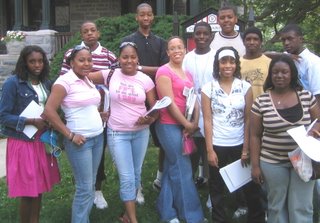Introduction to Mass
Reports about our inhumanity fill today’s newspapers. I have no doubt that Israel has been anxiously waiting and planning for the right political opening to attack Hezbollah targets in Lebanon and Hezbollah purposefully and knowingly handed Israel the opportunity. And bullets killed five men on the streets of Philadelphia yesterday. We are at a loss. Let us pray to redouble our own efforts to make peace a priority in our own lives.
Beginning the Homily
Looking at the weather report for the week, I am tempted to take advantage and preach a sermon like one given by my Irish ancestors: thundering on about hellfire and brimstone. Recently I read a memoir that mentioned an Irish priest preaching on this topic some sixty years ago who did not raise the hairs on anyone’s head. His performance was judged as “watery.” I fear the same judgment and will let the weather and global warming speak for themselves. My sermon will be tame and brief but, I hope, challenging.
Mark 6: 7-13 15th Sunday in Ordinary Time
Here is the advice that Jesus gives to his disciples when he sends them out to preach the gospel: “Take nothing for the journey but a walking stick—no food, no sack, no money in your belts…wear sandals but not a second tunic.”
For those of us who are surrounded by things and still want to be good Christians, these directives are a hard saying. I was in an airport recently waiting to check my bags and ahead of me were two men trying to figure out how to lighten the baggage that they wanted to check. How could they shift things so that they could carry on some of the weight that they were not allowed to put in the checked bag? Out of that bag and into their carry-on luggage came the shoes: walking boots, dress shoes, golf shoes, tennis shoes, sandals. They were ready for anything but weighed down like most of us.....
I was reminded of a funny passage in a novel I recently read about the Pentecostal family who were flying from Atlanta to Africa to preach the gospel in some remote village. The father of the family, aware that the family had to pack any thing that they might need in that small village, dressed his daughters triply and quadrubly in layers of garments because he knew the airline weighed the checked baggage but didn’t weigh the people.
This quadruple dressing of the daughters strikes us as comical. And the comedy reveals a truth about ourselves. We are attached to our possessions....
But there is no doubt that a focus on our things can lead to a self-absorption that saps us of our openness to service, to love, to the changes that a conversion of heart might require.
What Jesus makes clear here and elsewhere in his preaching: our ambitions ought not to be for tangible things: houses, cars, money. Or for less tangible things: power, skills, entitlements. All of these can only be means to the truly ambitious end that Jesus has for us: the kingdom of God. His principal message here and elsewhere in the Gospels: trust in me.
Saint Ignatius gives us sage advice: if you need the grace to be relieved from a worry about possessions and personal attributes, pray for relief and pray for a confidence in the plan that God has for you. Our baptisms call us to be disciples, to step forward not trusting so much in the things or talents that we have been given but trusting rather in the plan that God has for us.



